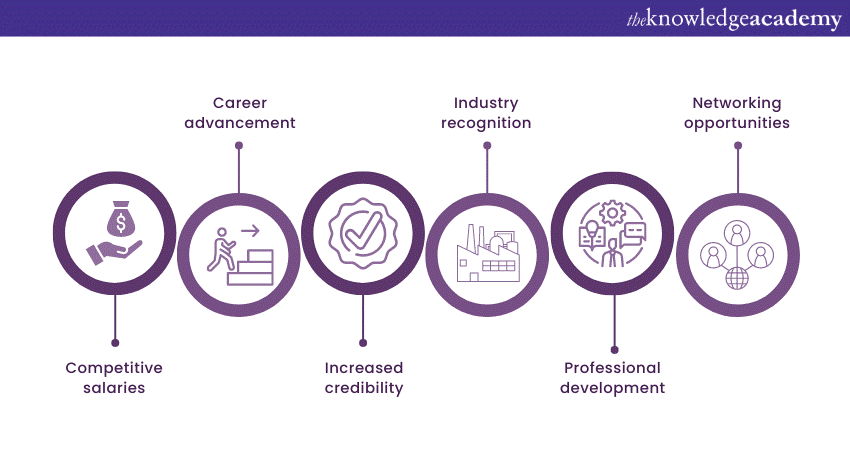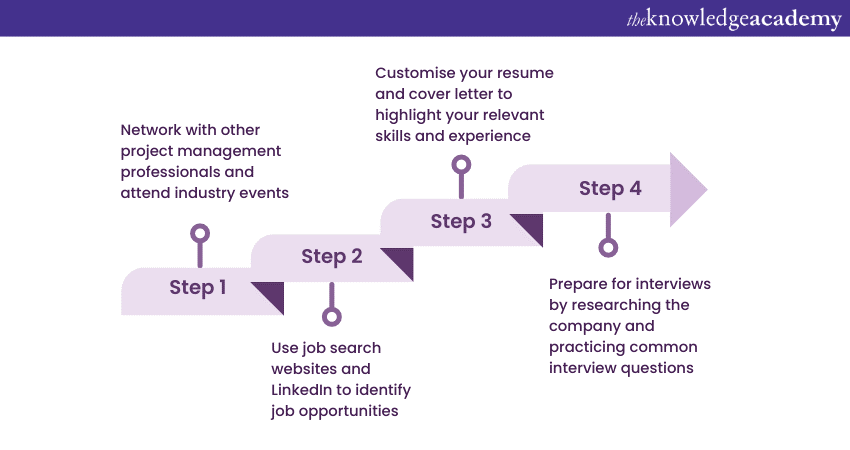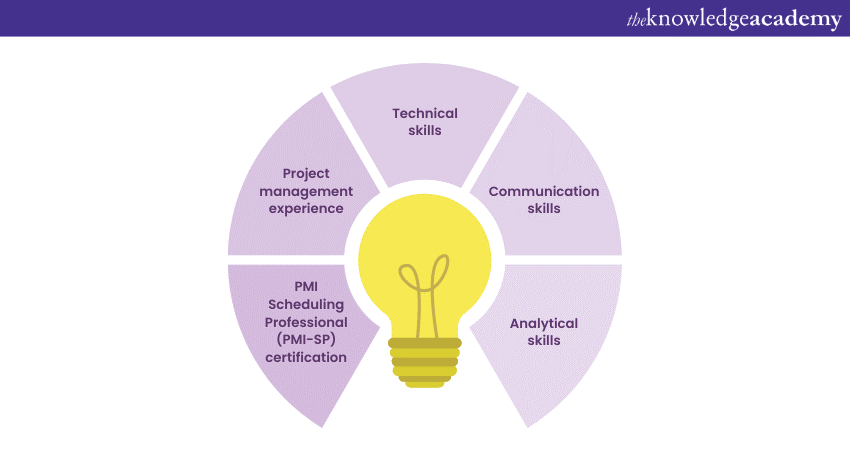We may not have the course you’re looking for. If you enquire or give us a call on 01344203999 and speak to our training experts, we may still be able to help with your training requirements.
We ensure quality, budget-alignment, and timely delivery by our expert instructors.

Project management is a dynamic and rewarding field that offers many opportunities for growth and advancement. One of the most sought-after certifications in this field is the PMI Scheduling Professional (SP) certification, which is designed to recognise individuals who specialise in project scheduling.
Earning a PMI SP certification can open up many doors in project management careers, as it demonstrates a high level of knowledge and expertise in project scheduling. In this blog post, we'll explore what PMI SP Jobs are, the benefits of pursuing a career in this field, how to find PMI SP Jobs, the challenges of working in this field, and the qualifications and skills needed to excel in PMI SP roles.
Whether you're just starting out in project management or looking to advance your career, this blog will provide you with a comprehensive overview of PMI SP Jobs and the opportunities they offer.
Table of Contents
1) What are PMI SP Jobs?
2) Benefits of PMI SP Jobs
3) How to find PMI SP Jobs?
4) Challenges of working in PMI SP Jobs
5) Qualifications and skills needed for PMI SP Jobs
6) Salary expectations for PMI SP Jobs
7) Conclusion
What are PMI SP Jobs?
PMI Scheduling Professional (SP) jobs are specialised project management roles focused on project scheduling. PMI SPs develop and maintain project timelines, ensuring timely and budget-conscious project delivery. They collaborate with project managers and stakeholders to define milestones, dependencies, and critical paths while monitoring progress. Exploring the History of PMI helps in understanding how PMI certifications like PMI SP have shaped industry standards and best practices over time.
PMI SPs typically work on complex projects in a range of industries, including construction, engineering, IT, and manufacturing. They may be employed by organisations of all sizes, from small businesses to large corporations, as well as by government agencies and non-profit organisations. Understanding the PMI SP Application Process is crucial to ensure you're fully prepared to begin your certification journey. Referring to a PMI SP Study Guide can be beneficial in understanding the nuances of this role.
The role of a PMI SP can vary depending on the organisation and project requirements. Some common tasks and responsibilities of PMI SPs include:
1) Developing and maintaining project schedules using industry-standard tools and techniques
2) Identifying project milestones, dependencies, and critical path activities
3) Collaborating with project teams to ensure schedules are realistic and achievable
4) Monitoring and reporting on project progress against the schedule
5) Identifying potential delays and issues that may impact the project schedule
6) Developing and implementing schedule risk management plans
7) Communicating project status and schedule updates to stakeholders.
8) PMI SPs are essential to the success of project management initiatives, as they ensure that projects are delivered on time and within budget. In the next section, we'll explore the benefits of pursuing a career in PMI SP Jobs.
Benefits of PMI SP Jobs

Earning a PMI SP certification and pursuing a career in PMI SP Jobs can offer a wide range of benefits for professionals in the project management field. Some of the key benefits of pursuing a career in PMI SP Jobs include:
1) Competitive salaries: PMI SPs are in high demand and can command competitive salaries, particularly for those with several years of experience and advanced certifications.
2) Career advancement: PMI SP Jobs can provide a clear path for career advancement within project management, with opportunities to move into roles such as project manager, program manager, or portfolio manager.
3) Increased credibility: Earning a PMI SP certification demonstrates a high level of knowledge and expertise in project scheduling, which can increase your credibility and marketability in the job market.
4) Industry recognition: PMI SP certification is recognised as a global standard for project scheduling, which can open doors to job opportunities in a range of industries and geographies.
5) Professional development: Pursuing a career in PMI SP Jobs requires ongoing professional development and learning, which can help you stay up-to-date with the latest trends, techniques, and tools in project scheduling.
6) Networking opportunities: PMI SP certification can provide access to a global community of project management professionals, which can offer valuable networking opportunities and connections.
How to find PMI SP Jobs?

Finding PMI SP Jobs requires a combination of research, networking, and a targeted job search approach. Here are some tips to help you find PMI SP Jobs:
1) Check online job boards: Online job boards such as LinkedIn, Indeed, and Glassdoor can be a good place to start your job search. Use keywords such as "PMI SP," "Project Scheduler," and "Project Controls Specialist" to narrow down your search and find relevant job postings.
2) Network with other project management professionals: Networking is a key part of any job search. Attend industry events, join professional organisations such as PMI, and connect with other project management professionals on LinkedIn to build your network and learn about job opportunities.
3) Research companies and industries: Identify companies and industries that are likely to have PMI SP roles and research their hiring practices and job openings. Look for companies that are actively hiring project management professionals or have a history of employing PMI SPs.
4) Use recruitment agencies: Recruitment agencies that specialise in project management can help you find PMI SP Jobs that match your skills and experience. Contact reputable recruitment agencies and submit your resume to their database to increase your chances of finding a job.
5) Leverage your PMI SP certification: Highlight your PMI SP certification in your resume and job application materials. This can help you stand out from other candidates and demonstrate your expertise in project scheduling.
Master project scheduling and elevate your career with PMI-SP certification – Register now for our PMI-SP training.
Challenges of working in PMI SP Jobs
Although a career in PMI SP Jobs can offer various advantages, it is essential to consider the potential challenges that may arise. Here are some of the primary challenges associated with working in PMI SP Jobs:
1) High pressure environment: PMI SPs are responsible for developing and managing project schedules, which can be a high-pressure and time-sensitive task. Meeting deadlines, managing project risks, and communicating with stakeholders can be challenging and stressful.
2) Technical expertise required: PMI SPs need to have a strong understanding of project scheduling techniques, software, and tools, and be able to apply them effectively to manage project schedules. This requires ongoing learning and development, and can be challenging for those who are not comfortable with technical aspects of project management.
3) Communication skills: PMI SPs need to be able to communicate complex project scheduling information effectively to project teams, stakeholders, and senior management. This requires strong verbal and written communication skills, and the ability to present information in a clear and concise manner.
4) Managing change: Project schedules can be impacted by changes in project scope, budget, or timeline. PMI SPs need to be able to manage change effectively and adjust project schedules as needed to keep projects on track.
5) Collaborating with diverse teams: PMI SPs need to work closely with project teams and stakeholders from different departments, locations, and backgrounds. This requires strong interpersonal skills, cultural awareness, and the proficiency to establish relationships and collaborate efficiently with diverse teams.
Qualifications and skills needed for PMI SP Jobs

To pursue a career in PMI SP Jobs, there are certain qualifications and skills you'll need to have. Here are some of the key qualifications and skills that employers look for in PMI SP candidates:
1) PMI Scheduling Professional (PMI-SP) certification: The PMI-SP certification is a globally recognised credential that demonstrates your expertise in project scheduling. To qualify for this certification, candidates must possess a high school diploma or equivalent, accumulate 5,000 hours of project scheduling experience, and complete 40 hours of project scheduling education.
2) Project management experience: In addition to the PMI-SP certification, employers typically look for candidates who have experience in project management. This can include experience leading projects, managing project teams, and coordinating project activities.
3) Technical skills: PMI SPs need to have a strong understanding of project scheduling software and tools, such as Microsoft Project or Primavera P6. They also need to have a good understanding of project management principles and techniques.
4) Communication skills: PMI SPs need to be able to communicate effectively with project teams, stakeholders, and senior management. This requires strong verbal and written communication skills, and the ability to present information in a clear and concise manner.
5) Analytical skills: PMI SPs need to be able to analyse project data and information to develop and manage project schedules. They also need to be able to identify and manage project risks, and make recommendations to senior management on how to mitigate risks and ensure project success.
Get ahead of the competition! Use our PMI SP Sample Questions to sharpen your skills and prepare for your certification exam.
Salary expectations for PMI SP Jobs
One of the key factors to consider when pursuing a career in PMI SP Jobs is salary expectations. According to data from the Project Management Institute (PMI), PMI SPs in the United States earn an average annual salary of $111,000. However, this can vary depending on a variety of factors, such as:
1) Experience: PMI SPs who have gained more experience usually command higher salaries in comparison to those who are beginning their careers.
2) Industry: PMI SPs in certain industries, such as construction or engineering, may earn higher salaries than those in other industries.
3) Location: Salaries for PMI SPs can vary depending on where you work. For example, PMI SPs working in large metropolitan areas may receive higher salaries compared to those working in smaller cities or rural regions.
4) Company size: PMI SPs who work for larger companies may earn higher salaries than those who work for smaller companies.
In addition to base PMI SP Salary, many PMI SPs may also receive bonuses, incentives, and other forms of compensation. Some employers may also offer benefits such as healthcare, retirement plans, and paid time off.
Conclusion
In conclusion, PMI SP Jobs offer an exciting and rewarding career path for those interested in project management and scheduling. By developing the necessary qualifications and skills, networking with industry professionals, and staying up-to-date with the latest trends and technologies, you can increase your chances of success in this field. We trust that this blog has offered you valuable insights and information regarding PMI SP Jobs.
Advance your project management career with PMP certification training – Register Now!
Upcoming Project Management Resources Batches & Dates
Date
 CAPM® Certification Training Course
CAPM® Certification Training Course
Mon 19th May 2025
Mon 30th Jun 2025
Mon 28th Jul 2025
Tue 26th Aug 2025
Mon 22nd Sep 2025
Mon 20th Oct 2025
Mon 17th Nov 2025
Mon 15th Dec 2025






 Top Rated Course
Top Rated Course



 If you wish to make any changes to your course, please
If you wish to make any changes to your course, please


